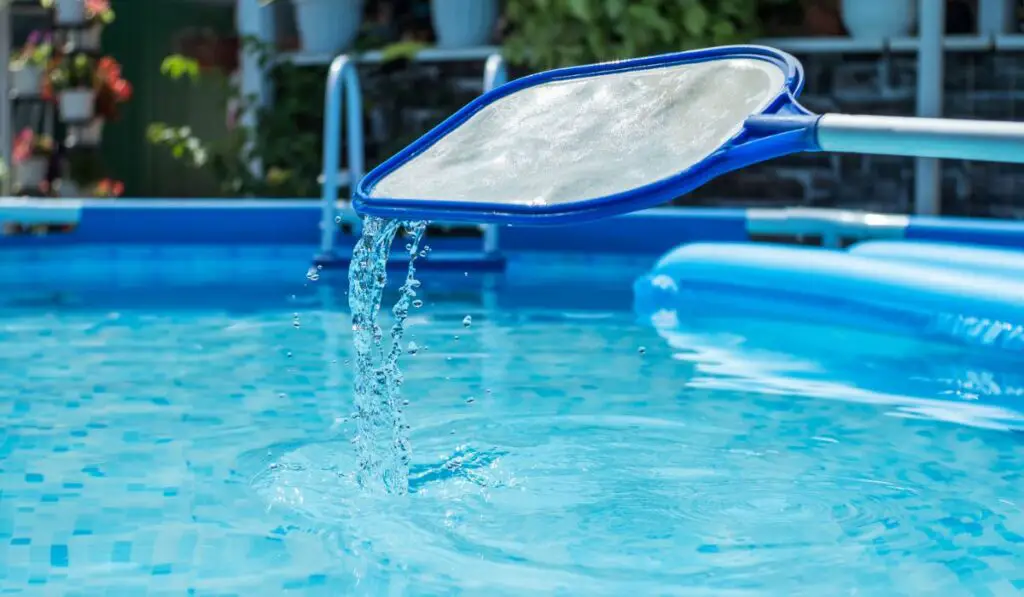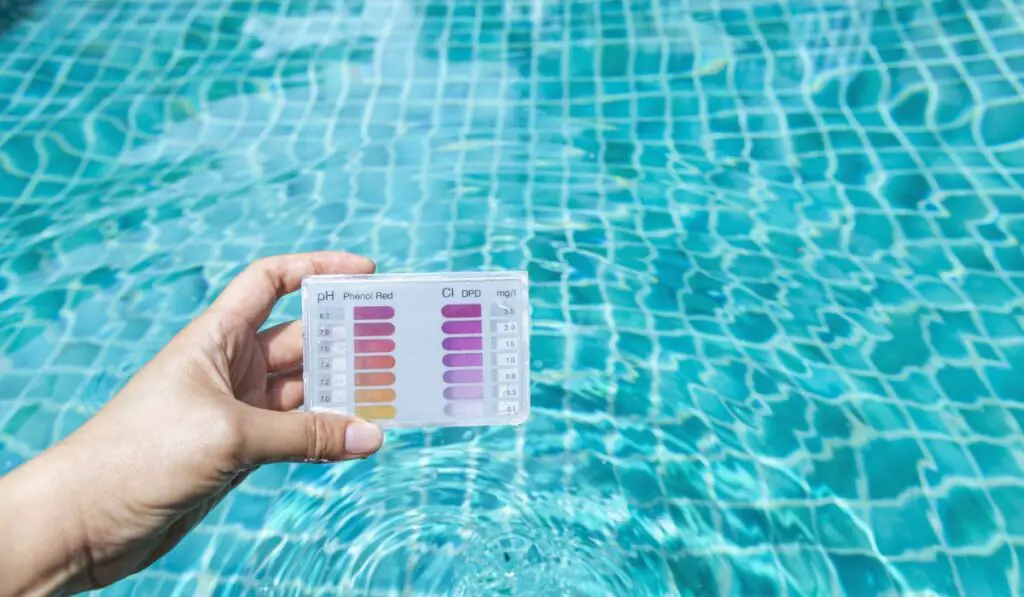Balancing your pool water pH and alkalinity can seem like a full-time job. But these aren’t the only two aspects of the water you need to take the time to balance. So how do you test for and increase calcium hardness?
The calcium hardness of your pool can be found using a test kit. If your water is too soft, it can be corrosive and damage your pool. The easiest way to increase calcium hardness is using a commercial calcium hardness increaser. Don’t increase it too much, however, as hard water isn’t nice either.
Curious about what level of calcium hardness you should aim for in your pool? Let’s look at more information about calcium hardness and some tips and tricks to maintaining the right level in your pool.
What is Calcium Hardness?

Calcium hardness is the term used to describe the calcium and magnesium content of your pool water. You may have also heard it referred to as how hard or soft your pool water is.
Water which is “hard” or has a high calcium hardness has a high level of dissolved calcium and magnesium in the water. Just like you need to test the pH and alkalinity of your pool, it is also important to test the calcium hardness.
If your water is too hard, or contains too many minerals, it can also cause scaling on the sides of your pool. If your water becomes too soft it will start to try to take calcium from the sides of your pool. This can corrode away tiles as well as cement and different equipment your pool needs to function.
Your pH and alkalinity must be balanced before you address the calcium hardness. After you balance them, then take a measure of the calcium hardness in your pool. The ideal calcium hardness levels in your pool should be between 175-275 ppm.
How to Test Hardness in Your Pool Water
The easiest way to test for calcium hardness in your pool is by using a test kit(on Amazon). Some digital testers also test for calcium hardness, but this isn’t always true so check that yours does or buy an additional kit.
The best way to test your water is by using a 5-gallon bucket to scoop some out of the middle of your pool. Then use the test kit to collect a sample from the bucket. This way you are more likely to get a good overall sample of your pool water rather than just the water that sits at the top of your pool.
How to Raise Calcium Hardness in a Pool
Is your pool water too soft? The good news is, raising the calcium hardness levels is pretty simple. All you need to do is purchase a calcium hardness increaser (on Amazon) and add it to your pool water.
Be aware, however, that not all calcium hardness increasers are created equal. You will need to carefully read the instructions on the package before adding it to your pool to ensure you get the balance just right. You’ll need your pool’s volume in order to do the calculations specified on the package to determine the right amount to add to your pool.
How to Lower Calcium Hardness in a Pool
If you live somewhere like Las Vegas, you will likely find yourself needing to lower the calcium hardness of your pool. This happens because the tap water in Las Vegas is already very hard and will scale up your pool if you aren’t careful.
Lowering calcium hardness in a pool isn’t easy, as you will likely need to drain some of the current water, and replace it with filtered water. Don’t just use tap water to replace it as this may only contribute to or continue the problem.
You can also use pool flocculant (on Amazon). To use this compound, you’ll need to turn off your filter and pump before you add it to the pool. After you add it, it will form clumps with the calcium and sink to the bottom of your pool. You can then use a pool vacuum to remove these clumps.
As a last resort, you can also add muriatic acid to the water. This won’t actually lower the calcium hardness, but it can help bring your water into a balance where it is less likely to damage your pool.
Tips for Maintaining Calcium Hardness Levels

As you can see, calcium hardness is a tricky aspect to balance. Therefore it is best if once you get it balanced, you take steps to maintain this balance. Here are some tips for maintaining calcium hardness.
- Keep your pool clean from debris by skimming your pool regularly
- Test your water frequently and make adjustments when needed
- Keep the pH balanced
- Keep the alkalinity balanced
- Never wait when it comes to rebalancing your pool water (as issues will only get worse!)
- Always investigate any scaling on the side of your pool
What Happens if Pool Water is Too Hard?
Pool water, when it is too hard, contains too many minerals so the water will try to rid itself of these minerals. It will do so by depositing them on the sides and bottom of your pool.
These deposits will look like white flakes and can irritate the skin and eyes of swimmers. They can also look quite unsightly and get dragged into your home on wet feet. Hard water will cloud your pool, and this cloudiness will not clear up after a shock treatment.
Once you have calcium deposits on the side of your pool, they are a pain to get rid of, so it is a good idea to keep your pool in balance to begin with.
What Happens if Pool Water is Too Soft?
Pool water that is too soft lacks the minerals it needs. It will therefore try to take these minerals from any source it can find.
This makes the water corrosive, and if your pool is made of cement or tile, the water will begin to dig into it. As a result, the bottom of your pool may become increasingly uneven, and the nice tiles you paid so much to install can become damaged. The pool water may also corrode the plaster used to keep tiles in place.
Not to mention that soft water can corrode metal, meaning the pipes and filter of your pool may be damaged and require expensive repairs. As long as you stay on top of your calcium hardness levels, this shouldn’t be a problem, but as you can imagine soft water can become expensive very quickly.
